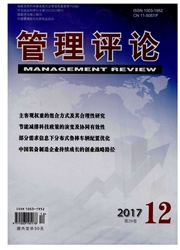

 中文摘要:
中文摘要:
节能减排影响就业,反过来,就业影响节能减排吗?本文基于STIRPAT模型,采用中国城市家庭的调查数据,分析就业状态及其变动对家庭消费隐含碳排放的影响。结果表明:受雇、失业和退休对家庭消费隐含碳排放的影响系数分别为0.0927、-0.233和-0.157,就学的影响不显著;就业状态影响的差异说明就业状态变动会导致家庭消费隐含碳排放的变动;具体而言,受雇通过衣着、家用设备、家居、通讯、交通和文教娱乐等多类消费增加家庭的隐含碳排放,退休增加家庭医疗保健消费的隐含碳排放,就学人员食品消费的隐含碳排放较高。研究结果能够为家庭节能减排政策的制定提供参考。
 英文摘要:
英文摘要:
Climate policies have impacts on employment. Conversely, does employment affect carbon emissions? Using the survey data from households in urban China and based on the STIRPAT model, this paper analyzes the impact of employment status on household carbon emissions resulting from consumption. The findings include: the affecting coefficients of employment, unemployment and retire- ment are 0.0927, -0.233 and -0.157 respectively; this implies that the changes of employment status will induce the changes of house- hold carbon emissions resulting from consumption. Specifically, employment increases household carbon emissions through consumptions in clothing, equipment, housing, communications, transportation, education or recreation; retirement increases household carbon emis- sions by means of healthcare; students produce more carbon emissions through food consumption. These findings are helpful for house- hold emission mitigation policies.
 同期刊论文项目
同期刊论文项目
 同项目期刊论文
同项目期刊论文
 Options strategies for international portfolios with overall risk management via multi-stage stochas
Options strategies for international portfolios with overall risk management via multi-stage stochas 期刊信息
期刊信息
